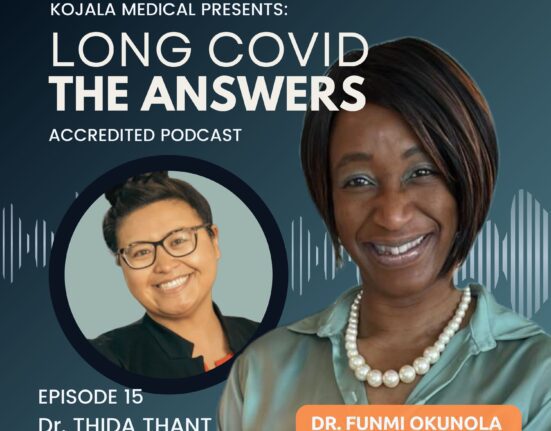Depression. What is it?

What it is: Depression is a prevalent mental health challenge associated with long COVID, a condition characterized by lingering symptoms following the acute phase of COVID-19. The emotional toll of dealing with persistent health issues and uncertainties about recovery contributes to the development or exacerbation of depressive symptoms. Also there is thought to be a decrease in Serotonin levels as a result of Long COVID, implying that there are biophysiological mechanisms as well as environmental leading to depression.
Typical Symptoms: Individuals with long COVID often experience symptoms of depression, including persistent sadness, fatigue, changes in appetite, sleep disturbances, and a diminished interest in activities they once enjoyed. The combination of physical and emotional struggles can create a complex interplay that intensifies the impact on mental well-being.
Who Gets It: Long COVID-related depression can affect individuals of all ages, regardless of the severity of their initial COVID-19 symptoms. Those with pre-existing mental health conditions may be particularly vulnerable. The unpredictable and fluctuating nature of long COVID can add an additional layer of stress, contributing to the development of depressive symptoms.
Key Points:
- Depression is a common mental health challenge associated with long COVID.
- Symptoms may include persistent sadness, fatigue, appetite changes, and sleep disturbances.
- Both the physical and emotional aspects of long COVID contribute to the complexity of depression.
- Individuals with pre-existing mental health conditions may be more susceptible to long COVID-related depression.
- Comprehensive support, including mental health interventions and social resources, are crucial for individuals navigating both the physical and emotional aspects of long COVID.
Long COVID’s impact on mental health, exemplified by the prevalence of depression, underscores the importance of a holistic approach to recovery, addressing both the physical and emotional dimensions to foster resilience and well-being.
Long Covid The Answers
Relief:
- Psychotherapy: Engaging in psychotherapy modalities such as cognitive-behavioral therapy (CBT), interpersonal therapy (IPT), or mindfulness-based therapy can help individuals process emotions, develop coping strategies, and alleviate symptoms of depression in the context of long COVID.
- Medication Management: Collaborating with healthcare providers to explore medication options such as antidepressants or anxiolytics can help manage symptoms of depression, improve mood regulation, and enhance overall well-being for individuals grappling with the psychological impact of long COVID.
- Social Support: Seeking support from friends, family members, support groups, or mental health professionals can provide validation, understanding, and connection for individuals experiencing depression in the aftermath of COVID-19 infection, fostering a sense of community and resilience.
- Healthy Lifestyle Habits: Prioritizing healthy lifestyle habits such as regular physical activity, balanced nutrition, adequate sleep, and stress management techniques can help support mood regulation, promote resilience, and enhance overall well-being for individuals managing depression in long COVID.
Good sources of information:
The following references are a guide. Please refer to a fully qualified and fully registered healthcare practitioner such as a Psychologist, Family Physician or Psychiatrist for diagnosis and management of your illness.
1. Long COVID the Answers interview with Professor Thida Thant MD – “The Psychiatric Management of Mental Health in Long COVID – **Full interview coming soon.
2. Anxiety Canada – anxiety is often associated with depression, and this is a not for profit organization that gives helpful information on anxiety management. This is not Long COVID specific but none the less useful. There are free resources and an app to access, examples include free CBT courses for adults, young adults and children. Worth a visit.
3. Clearing the Fog: From Surviving to Thriving with Long COVID – A Practical Guide – by James C. Jackson– Great practical guide on managing mental illness with Long COVID
4. “A Guide to Long COVID & Mental Health” – Excellent guide published by University College London and the University of York. Mainly aimed at UK citizens but still generally useful none-the-less. Some good management techniques for managing anxiety in Long COVID.
5. The Canadian Mental Health Association – a Canadian, nationwide association with 330 community locations offering low cost counselling, access to an assisted care team for emergency outreach, social and peer support and much more. Each location has details of what mental health support is available in their local area.
6. HelpGuide.org – is a not for profit, international organisation spanning 9 countries that has resources for a variety of mental health issues and a directory of national mental health helplines in each of the 9 countries it features. There is a short article on the site about managing depression in Long COVID.
7. World Health Organisation – if you type “Long COVID and mental health” in the website search engine pages of information and research about the Worldwide effects of the pandemic on our mental health Long COVID and mental health appear. This ranges from research done in specific countries to presentations of various mental health topics about COVID-19 and Long COVID. Worth exploring.







